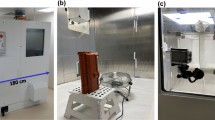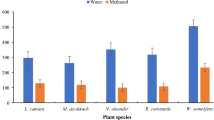Abstract
CRITICISM1–4 of the use of the alkylating agent thiotepa (triethylene thiophosphoramide) to sterilise mosquitoes, as part of an eradication programme in India, focused on its toxicity and the possibility that it or its breakdown products would harm other animal components of the food chain. For example, a Canadian team found reduced fertility in spiders fed on mosquitoes sterilised with thiotepa5. Some means was needed to ensure that no aziridine residues—breakdown products of thiotepa—remain in the insects after release into the environment. We have now achieved this, essentially by dipping the chemosterilised insects into acid and then alkaline solutions.
This is a preview of subscription content, access via your institution
Access options
Subscribe to this journal
Receive 51 print issues and online access
$199.00 per year
only $3.90 per issue
Buy this article
- Purchase on SpringerLink
- Instant access to the full article PDF.
USD 39.95
Prices may be subject to local taxes which are calculated during checkout
Similar content being viewed by others
References
Sehgel, N. K. Nature, 251, 177 (1974).
Nature, 256, 355 (1975).
Sci. Today, 26 (June, 1975); 26 (July, 1975); 24 (September, 1975).
Hanlon, J. New Sci., 68, 102 (1975).
Bracken, G. K., and Dondale, C. D., Can. Ent., 104, 1709 (1972).
Walpole, A. L., Roberts, D. C., Rose, F. L., Hendry, J. A., and Homer, R. F., Br. J. Pharmac., 9, 306 (1954).
Beroza, M., and Borkovec, A. B., J. med. Chem., 7, 44 (1964).
Author information
Authors and Affiliations
Rights and permissions
About this article
Cite this article
SHARMA, V. Elimination of aziridine residues from chemosterilised mosquitoes. Nature 261, 135 (1976). https://doi.org/10.1038/261135a0
Received:
Accepted:
Issue date:
DOI: https://doi.org/10.1038/261135a0



